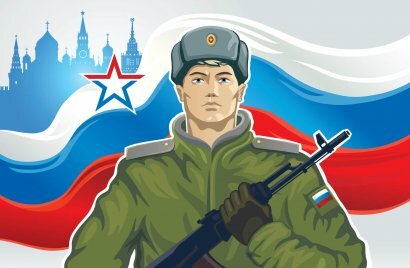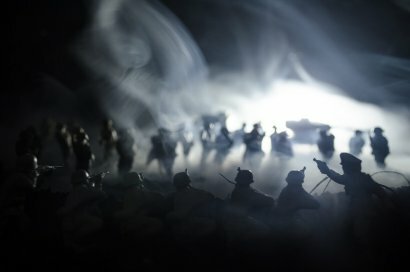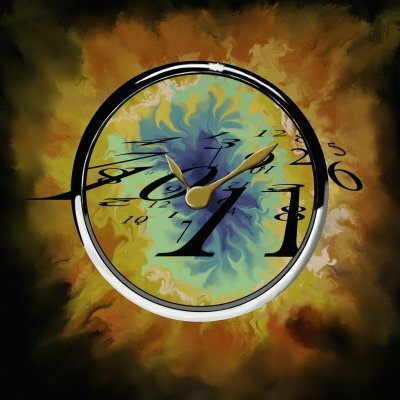Russian Liberation Army (ROA)
Miscellanea / / July 04, 2021
By Guillem Alsina González, in Aug. 2017
 When the Allies landed in Normandy in June 1944 to initiate the liberation of Europe and advanced from the beaches to the interior, they began to take numerous prisoners, and not all were Germans.
When the Allies landed in Normandy in June 1944 to initiate the liberation of Europe and advanced from the beaches to the interior, they began to take numerous prisoners, and not all were Germans.
Some of the prisoners taken in Normandy were Russians who fought in the Wehrmacht forces, in their own battalions,
but where did they come from and why did they fight against who in theory was their enemy?
No armed conflictHowever small it may be, it can be reduced to "good against bad," or one side against another. All are more polyhedral and with greater ramifications than what we can see with the naked eye, and in all they meet people who, theoretically, should belong to one of the sides, framed in the other.
And, although many times we are tempted to hang the label of "traitors", reality is once again more multifaceted and less simple.
This is the case with many of the Russians who fought with the ROA, an army within the German armed forces in which They militarized an amalgam of Russians with different purposes and ideas, but with the common nexus of opposing the communist regime of the USSR.
It is called the Russian Liberation Army in Spanish, but its acronym corresponds to the transliteration to Latin alphabet of Rússkaya Osvobodítelnaya Ármiya (in the original in Cyrillic, Русская освободительная армия).
The origin of the ROA is in the German invasion of the USSR in 1941.
Many of the troops that faced the Germans and their Axis allies were not motivated to fight; First, the atrocities that the Germans had already committed in the occupied territories and that they would commit in the USSR itself as their advance progressed were unknown.
Second, there were many in the USSR itself who did not exactly sympathize with the communism, nor with the Stalin regime. And, as the last great cause of the massive surrenders carried out by many Soviet soldiers and units entire Red Army, we have the nationalisms of certain Soviet republics and some collective humans.
As an example of the latter, we have the reception that the Ukrainian civilians among others gave to the invading armies as they entered towns and cities, since they were considered, at first, as liberators, although later - and due to their brutal behavior - the tables turned.
Initially, the imprisoned Soviet Army soldiers were incarcerated in prison camps, although the conditions in these were simply horrible, and the struggle for survival there, with the underfed and treated prisoners - in keeping with the ideas of the National Socialism - more like animals than people, encouraged many to volunteer to serve in the military German.
Some did it simply to escape a death from starvation and exhaustion, while others combined that with anti-communist sentiment.
Drawn into the ranks of the German army, they met other volunteers, who had not passed through the prison camps, and who were basically exiles from the movement White Russian (Tsarist), loser of the Russian Civil War, and now seeking revenge by siding with the Nazis.
Initially, the units formed by Russians, as by other Slavic peoples, performed auxiliary functions, such as those related to logistics (transport) or police in the rear.
 However, the growing military needs of the German army, whose top officials were surprised by the size of the Red Army and its weapons production capacity, as well as designs such as the excellent T34, led support units (calls Hiwi, Abbreviation of Hilfswillige, volunteer auxiliary) became combat units.
However, the growing military needs of the German army, whose top officials were surprised by the size of the Red Army and its weapons production capacity, as well as designs such as the excellent T34, led support units (calls Hiwi, Abbreviation of Hilfswillige, volunteer auxiliary) became combat units.
In those moments, before the Battle of Stalingrad, the ROA did not exist as such;
it was the Soviet general Andrei Vlasov, captured by the Germans in July 1942, who assembled a Russian-White army to fight against the Red Army.
Vlasov convinced the German commanders, being Heinrich Himmler, the feared chief of the SS and second of the Führer, the one in charge of convincing a Hitler reluctant to the initiative (remember that he considered the Slavic peoples as racially inferior).
Once constituted, the ROA participated primarily in security and anti-partisan operations behind the front line,
although several factors contributed to their loss of confidence of the German commanders in this phase of the war.
In the first place, the contact between the soldiers of the ROA and the population civil, there were cases in which the former sympathized with the latter, something natural considering that they were countrymen.
Second, we have the treatment of Russians by the Nazis. Such subhuman treatment led many Hiwis and members of the ROA to question their loyalty to a cause that, although at first they could make their own, once they saw the development of events, they saw that it was not the same.
And finally, the axis military setbacks, which began with the impossibility of taking Leningrad and Moscow, and reached their climax with the defeat at Stalingrad.
Why weren't there massive defections of ROA members? Simple, because Stalin had decreed that any prisoner or soldier of the ROA who surrendered, be summarily executed in the same place in which he surrendered.
Due to the unreliability they aroused in the German command, some combat units of the ROA were transferred to the West, to protect the Atlantic Wall, and as a result, they were the ones the Allies found in Normandy when landed.
Although some of these troops, poorly equipped, poorly fed and with a moral fighters very touched by everything explained, they surrendered easily and quickly, others defended themselves to the death, fearful that the western allies would hand them over to the Soviets.
The latter were not without reason: an agreement between the Western allies and Stalin led the former to surrender the ROA prisoners, had been captured in combat or had voluntarily surrendered, to the soviets
who, following Stalin's orders, were summarily executed as they were delivered.
During the final stage of the war, Vlasov, connoisseur of the politics Soviet to his own, tried to lead the ROA units to surrender to the Anglo-American troops.
On the westward journey, the ROA switched sides, facing German units that had been tasked with destroying Prague after the city's uprising.
Although Vlasov initially disagreed with the decision to protect Prague (which was also influenced by the fact that the Czechs share Slavic origin with the Russians, and that many Russian-whites were impregnated with Pan-Slavism), he bowed to the facts accomplished.
After the battle of Prague, many members of the ROA managed to reach the Anglo-American lines, like Vlasov himself, but they found the sad reality that they were being sent back to the Soviet lines, where many were massacred and others were taken to harsh detention centers, the known as gulag. Vlasov himself was hanged in 1946 after a summary trial.
The curious circumstance occurs that the first Russian military pilots to officially fly in combat with jets, did so from the German side, with two Me 262s loaned to the ROA as part of their force of aerial protection.
The ROA should not be confused with the osttruppen, which were also troops from eastern Europe (especially the USSR), but framed within the Wehrmacht and that, therefore, they were never part of the ROA nor were they under the command of Vlasov.
Photos: Fotolia - Rustic / Zeferli
Topics in Russian Liberation Army (ROA)
